Imagine this: a middle-of-the-night fire breaks out in your home, but the smoke detector you installed years ago—advertised to last a decade—fails to sound. This terrifying scenario isn’t just hypothetical; it raises a critical question for every homeowner and property manager: When a smoke detector claims a 10-year lifespan, can you truly rely on it to protect you for that long? The answer, as with many safety devices, lies in understanding the science behind the claim, the factors that erode performance over time, and how to choose a product that lives up to its promise.
The Science of “10-Year Lifespan”: What It Really Means
First, it’s essential to clarify what “nominal lifespan” denotes. Manufacturers determine this figure through accelerated aging tests, simulating years of use in controlled environments. For modern smoke detectors, this lifespan typically refers to two key components: the sensing chamber (the “brain” that detects smoke) and the power source. Older models—especially ionization-type detectors, many of which are now phased out due to safety concerns—often had 3-5 year lifespans, relying on replaceable batteries that added maintenance hassle. Today’s 10-year claims are most common in photoelectric and dual-sensor detectors, which use more durable components and often integrate long-life batteries.
But here’s the catch: controlled lab conditions don’t mirror real-world use. A detector in a dusty attic, a humid bathroom, or a kitchen prone to grease splatters will degrade far faster than one in a clean, temperature-stable bedroom. So, while the 10-year label is a starting point, it’s rarely a guarantee.
Key Factors That Shorten a Smoke Detector’s Life
1. Environmental Aggressors
The biggest enemy of smoke detectors is their surroundings. Humidity, for example, corrodes electrical components and can trigger false alarms or render the sensing chamber unresponsive. In coastal areas, salt air accelerates this corrosion, while in desert regions, fine dust particles can clog the detector’s vents, preventing smoke from reaching the sensor. Even everyday household elements—cooking grease, cigarette smoke, and volatile organic compounds (VOCs) from cleaning products—coat the sensing elements over time, reducing their sensitivity.
A 2023 study by the National Fire Protection Association (NFPA) found that detectors installed in kitchens or garages had a 40% higher failure rate within 5 years compared to those in living areas. The lesson? Placement matters as much as the product’s label.
2. Poor Maintenance (or No Maintenance)
Many homeowners make the mistake of installing a smoke detector and forgetting about it—until it’s too late. Even “low-maintenance” 10-year models require basic upkeep. Dust buildup is the most common issue: vacuuming the vents every 6 months removes debris that blocks smoke. Testing the alarm monthly (by pressing the test button) ensures the speaker and sensor are working, while replacing the entire unit if it starts chirping (a sign of battery or sensor failure) is non-negotiable.
Neglecting these steps turns a 10-year claim into a false sense of security. The NFPA reports that 30% of smoke detector failures in residential fires are due to lack of maintenance, not expired lifespan.
3. Outdated Technology or Manufacturing Defects
Not all 10-year detectors are created equal. Cheaper models may use low-grade plastics that become brittle over time, or sensors with inconsistent calibration. Additionally, regulatory standards evolve: in the U.S., UL 217 (the safety standard for smoke detectors) was updated in 2021 to require better resistance to false alarms and longer sensor stability. Detectors manufactured before these updates may not meet modern durability expectations, even if they’re still within the 10-year window.
Regulatory Standards: Setting the Bar for Lifespan
To protect consumers, global safety organizations have established clear guidelines for smoke detector lifespans. In the United States, UL (Underwriters Laboratories) requires 10-year detectors to pass rigorous tests, including 10,000 hours of operation (equivalent to over a year of continuous use) and temperature cycling from -4°F to 122°F (-20°C to 50°C). In the European Union, EN 14604 mandates similar durability checks, while China’s GB 29837-2013 specifies that fire detection products should not exceed 12 years of service—reinforcing that 10-year claims are reasonable but not indefinite.
These standards are crucial, but they’re minimum requirements. A high-quality detector will exceed them, while a budget model may only just meet them—especially in harsh environments.
When to Replace Your Smoke Detector (Even If It’s “Not Expired”)
Knowing when to replace a detector is as important as choosing the right one. Look for these red flags, regardless of how many years it’s been installed:
-
Frequent false alarms: If the detector goes off for no reason (e.g., no smoke, no cooking fumes), the sensor is likely degraded.
-
Failed test button: If pressing the test button doesn’t trigger the alarm, the speaker or power source is faulty.
-
Chirping sounds: This is the detector’s way of signaling a low battery or sensor failure—don’t ignore it.
-
Visible damage: Cracked casing, melted wires, or water damage mean the internal components are compromised.
As a general rule, even if none of these signs appear, replace your detector after 10 years—this aligns with manufacturer recommendations and safety standards.
Wisualarm’s 10-Year Battery Smoke Detector: Delivering on the Promise
For homeowners who want to trust their smoke detector’s lifespan, Wisualarm’s 10-Year Battery Smoke Detector stands out as a solution designed to bridge the gap between marketing claims and real-world performance. Built with the user’s safety and convenience in mind, it addresses the key pain points that shorten other detectors’ lives.
First, its integrated 10-year lithium battery eliminates the need for replacement—no more climbing ladders to swap batteries, and no risk of forgetting (a common cause of non-functional detectors). The battery is sealed within the unit, protected from humidity and dust, ensuring consistent power until the detector’s end of life.
Second, its photoelectric sensor is calibrated for maximum sensitivity to smoldering fires (the leading cause of residential fire deaths) while resisting false alarms from cooking smoke or steam. The sensor is housed in a corrosion-resistant casing, making it suitable for kitchens, bathrooms, and even garages—environments where cheaper detectors fail quickly. An LED status light provides at-a-glance confirmation that the detector is working, and a loud 85-decibel alarm ensures it’s heard throughout the home.
Installation is another highlight: a detachable base means you can mount the bracket first, then snap the detector into place—no tools required for most setups. And because Wisualarm adheres to EN 14604 standards, you can be confident its 10-year claim is backed by rigorous testing.
Conclusion: Invest in Reliability, Not Just a Label
So, can a 10-year smoke detector really last a decade? Yes—if it’s a high-quality model, installed in the right location, and properly maintained. The key is to look beyond the label: choose a detector with durable components, compliance with modern safety standards, and features that simplify maintenance (like Wisualarm’s long-life battery and status indicators).
Your smoke detector is your first line of defense against fire. Cutting corners on quality or neglecting maintenance turns a life-saving device into a useless one. By selecting a reliable product like Wisualarm’s 10-Year Battery Smoke Detector and following basic upkeep steps, you can ensure that when danger strikes, your detector is ready to sound the alarm—exactly when you need it most.









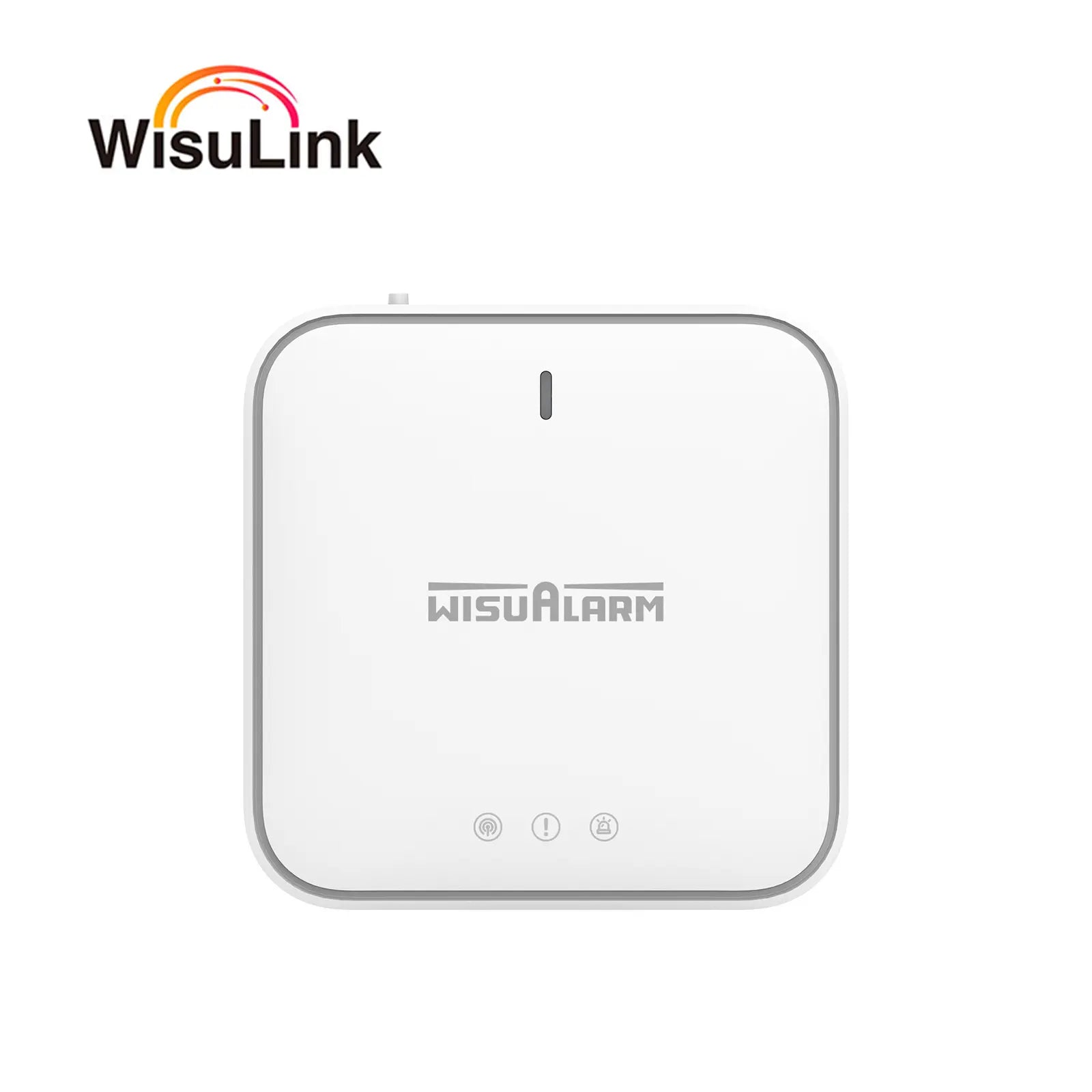
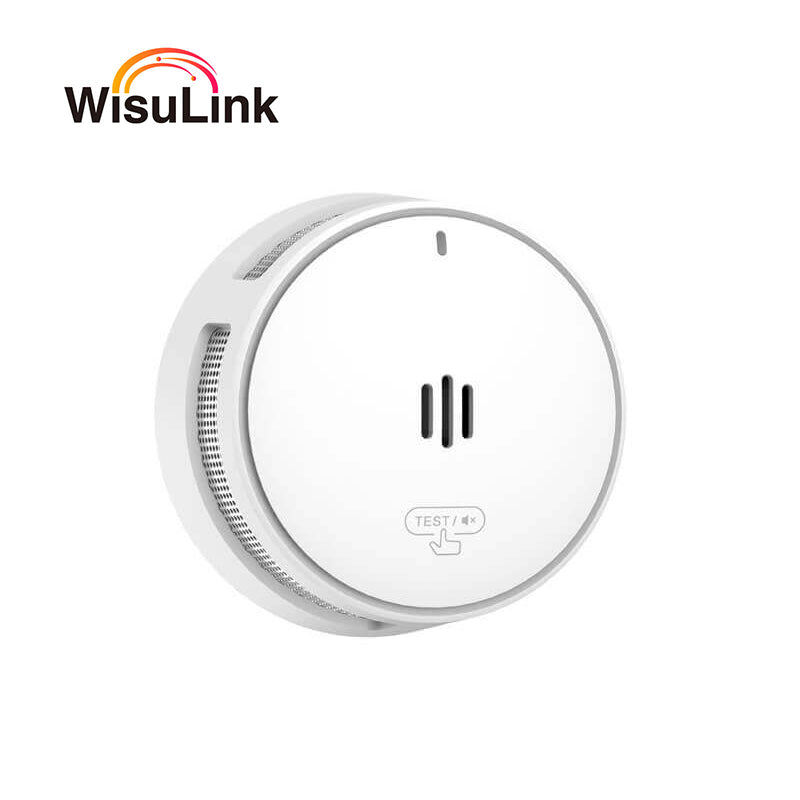
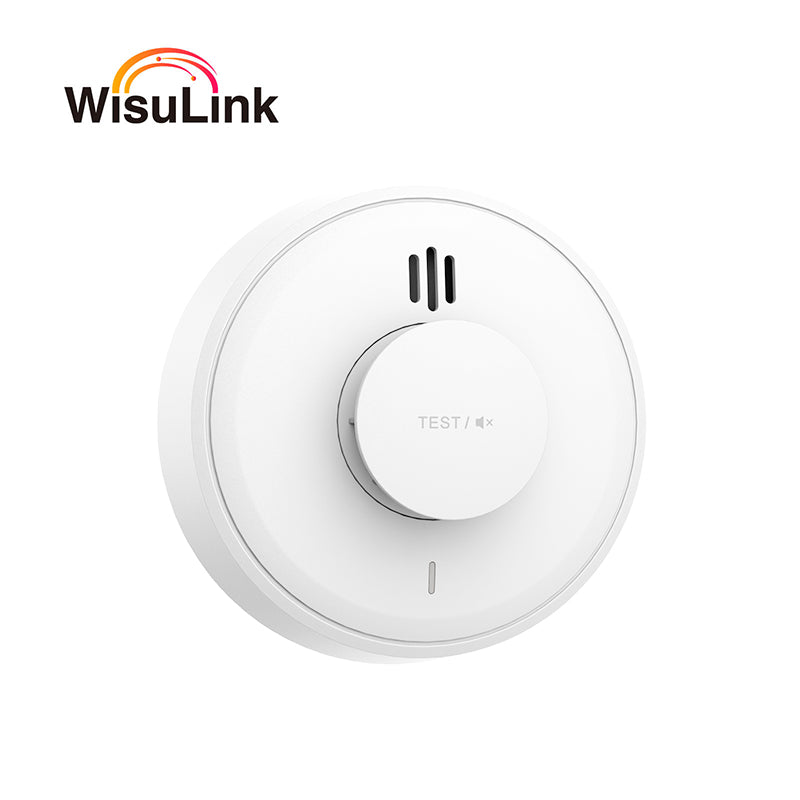
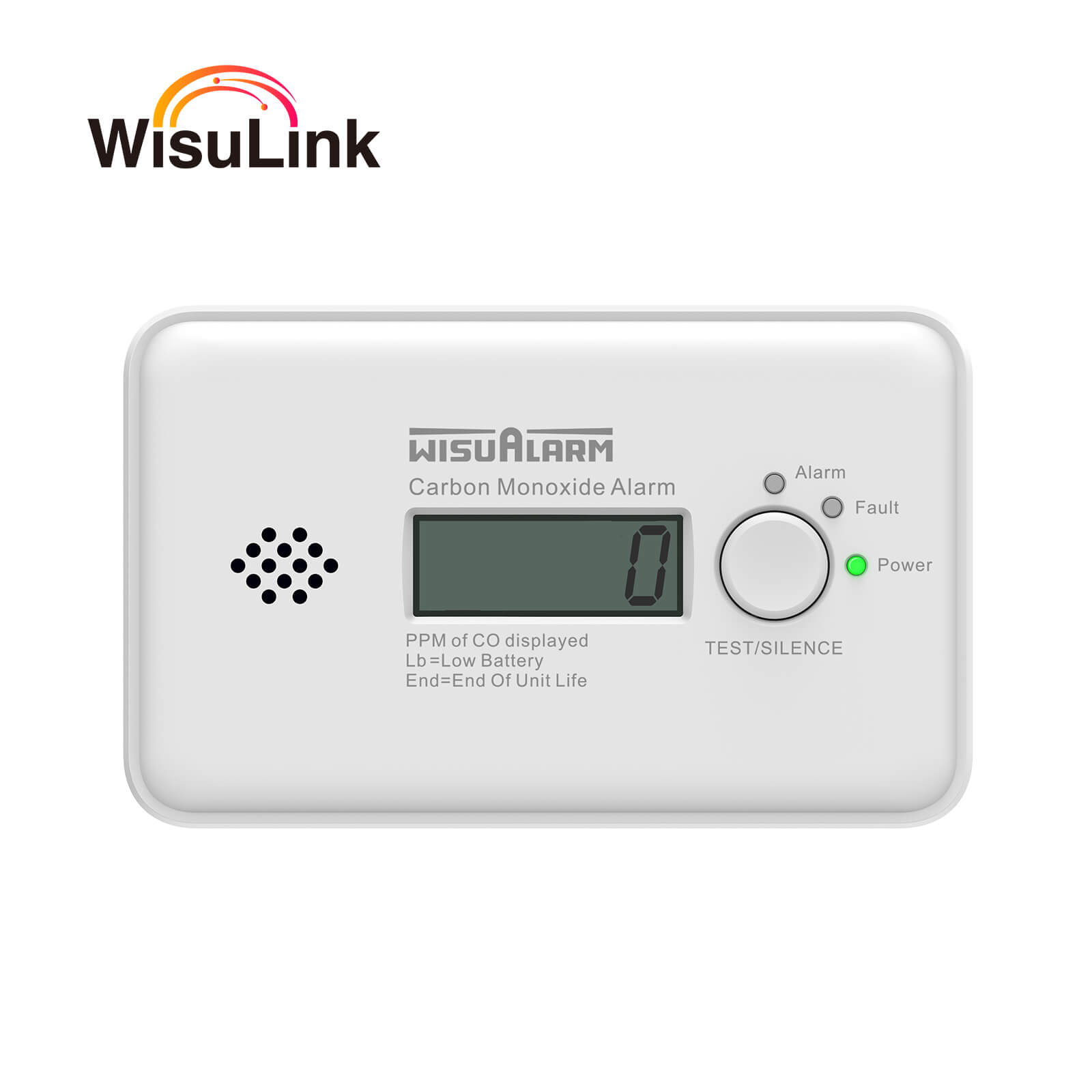









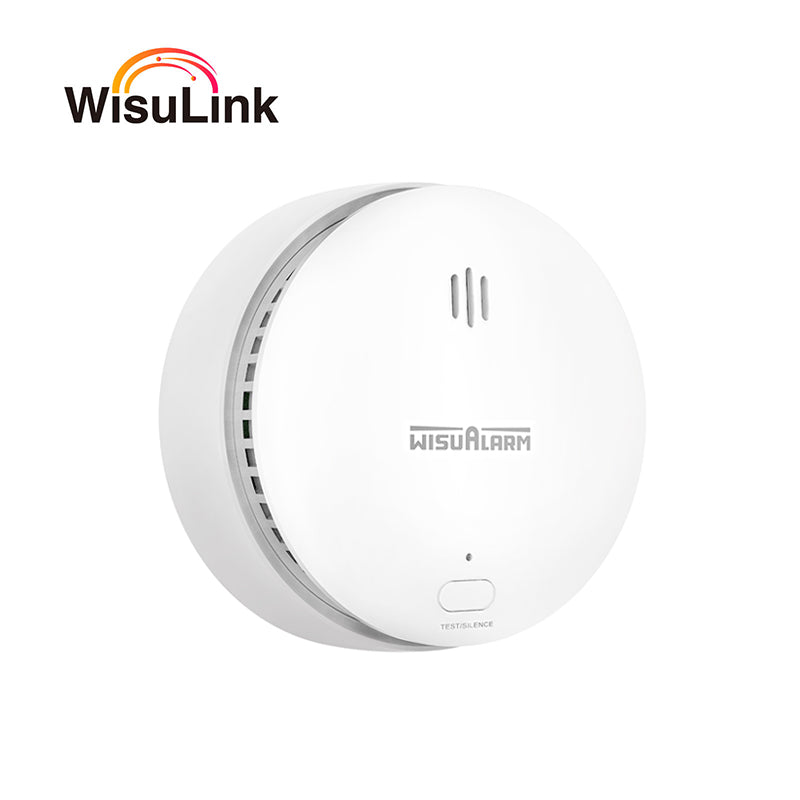














































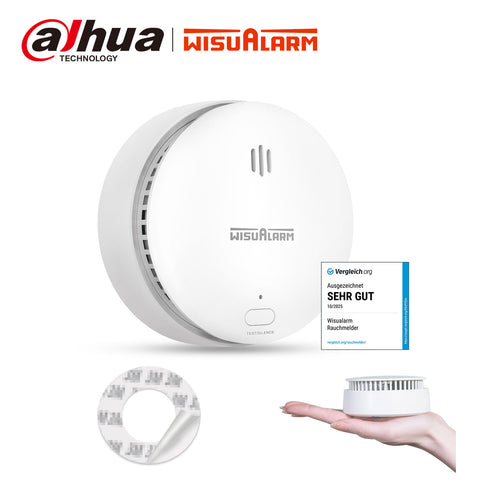
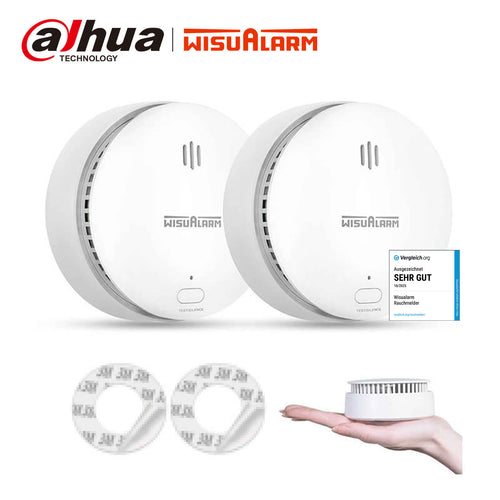

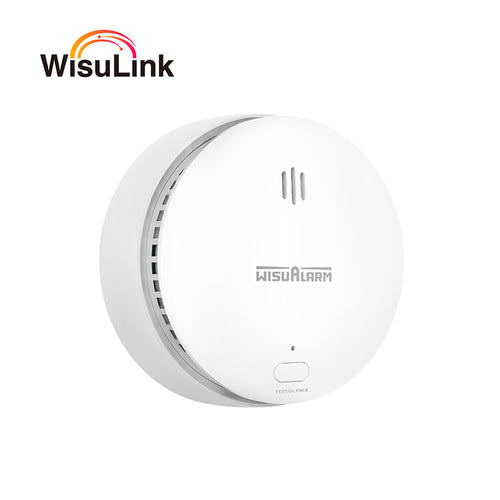
 Battery: 10 years 3V CR123A lithium battery (non-replaceable)
Battery: 10 years 3V CR123A lithium battery (non-replaceable)


